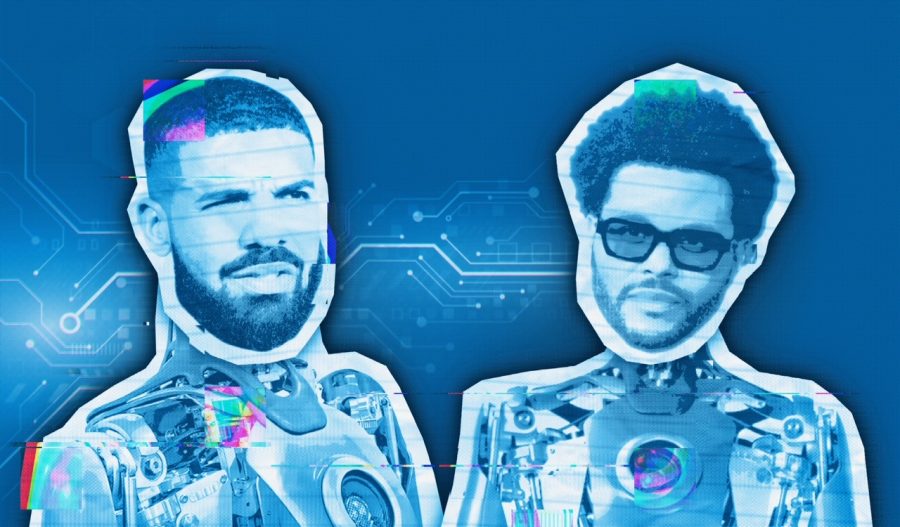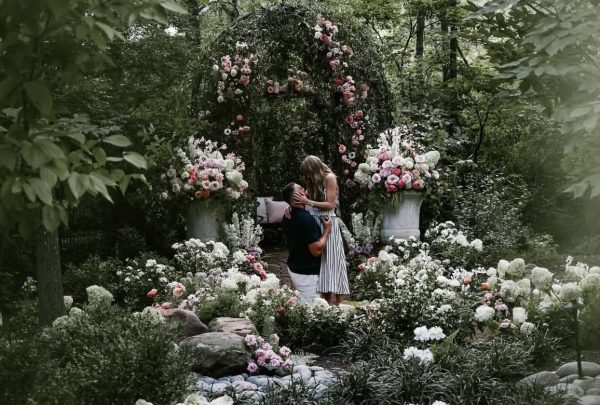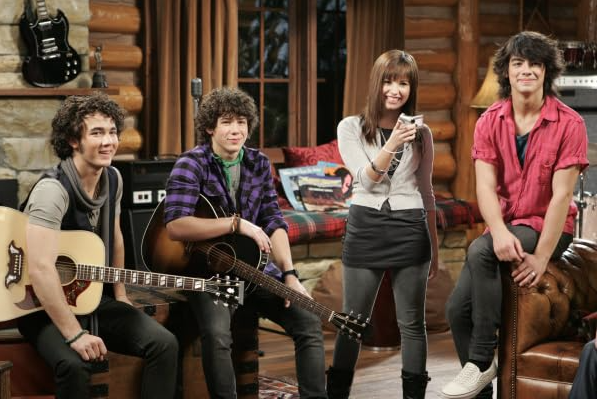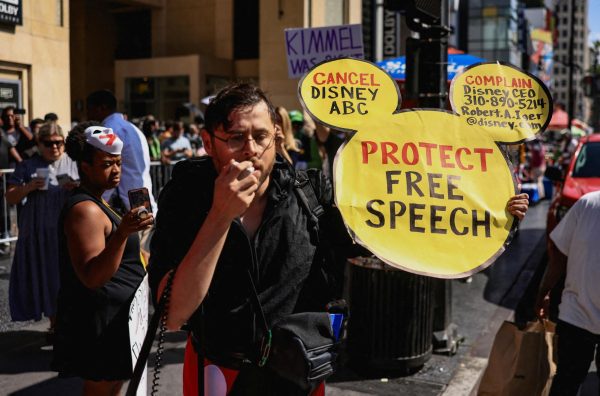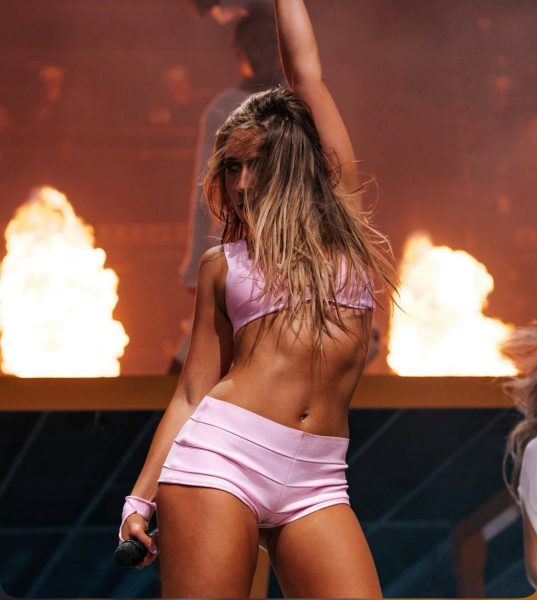AI Impersonations present an unsettling future for the music industry
In the past few months, AI covers of popular songs have become prevalent on social media, accompanying the recent surge of advancing technology. While it is entertaining to hear Kanye West sing “Wonderwall” and other radio icons sing covers of classic hits, this new technology brings light to an unprecedented dilemma in the music industry: the recent growth of AI technology is beginning to pose large threats, now infringing on artists’ rights to their own voices.
“Heart on my Sleeve,” a song uploaded to social media by an anonymous user, uses AI technology to mimic the voices of Drake and The Weeknd. While it was only accessible online for a couple of days, the song reached millions of people on TikTok and Spotify, exposing the potential of AI technology and the effect it might have on the music industry. This recent development shows AI’s potential to steal the jobs of trained professionals.
Up until now, artists have been the only ones with access to their own unique voices and styles, but recent unregulated AI technology has made artists’ voices surprisingly easy and free to replicate. This devalues not only an artist’s voice, but also decreases the value of their music. If this AI technology continues to be accessible to the public, many popular artists will lose the unique aspects that make their music so successful.
Companies and legal teams such as Universal Legal Group are working to sort out public policy initiatives in order to protect an artists’ rights to their own voice. While a song legally must be made by a human, the extent to which technology is utilized to produce or modify the song is a gray area.
This advancement in music technology is not unlike the synthesizer or Auto-Tune, both widely known for their large and sometimes detrimental impact on the music industry.
While many are skeptical of this new technology, some have embraced it. Artist Holly Herndon launched her AI project, “Holly+,” around two years ago. Using AI technology, she created a computer program that can replicate any song using her voice. Users can use her “digital twin” to hear Herndon’s voice sing any song on the internet. She was the first artist to use this imitation technology to her benefit, but other artists are beginning to follow Herndon’s lead.
“I’ll split 50 percent royalties on any successful AI generated song that uses my voice,” electronic pop singer Grimes said on March 24. “I’m just curious [as to] what even happens and [I’m] interested in being a guinea pig.”
AI provides artists with new ways to monetize their voices, as well as gives open access for the public to create music featuring popular artists. This opens up unique possibilities for the creation of music, while also taking away the exclusiveness of popular artists and producers and giving anyone the opportunity to make their own hit song.
If AI technology remains open for public usage, there will be an oversaturation of ambient music and mood-based songs on streaming platforms, but it is unlikely that AI will be able to replace the sincerity and humanity in most popular music. Peoples’ attraction to music comes from the raw emotions that a song conveys, which can never be fully replicated by a computer program, despite rapidly advancing AI technology.
